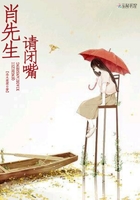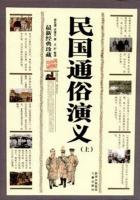But nothing kept the dust at bay for long, and after a while the creek dried up to a string of waterholes, so that there was no water to be pumped up from it to kitchen or bathroom. Stuart took the tank truck out to the borehead and brought it back full, emptied it intoone of the spare rain tanks, and the women had to get used to a different kind of horrible water on dishes and clothes and bodies, worse than muddy creek water. The rank, sulphur-smelling minerally stuff had to be wiped off dishes scrupulously, and made the hair dull and coarse, like straw. What little rain water they had was used strictly for drinking and cooking.
Father Ralph watched Meggie tenderly. She was brushing Patsy's curly red head, Jims standing obediently but a little rockily waiting for his turn, both pairs of bright blue eyes turned up to her adoringly. Just like a tiny mother, she was. It had to be a thing born in them, he mused, that peculiar obsession women had for infants, else at her age she would have regarded it as a duty rather than pure pleasure, and been off to do something more alluring as fast as she could. Instead she was deliberately prolonging the process, crimping Patsy's hair between her fingers to shape waves out of its unruliness. For a while the priest was charmed with her activity, then he whacked the side of his dusty boot with his crop and stared moodily off the veranda toward the big house, hidden by its ghost gums and vines, the profusion of station buildings and pepper trees which lay between its isolation and this hub of station life, the head stockman's residence. What plot was she weaving, that old spider up there at the center of her vast web? "Father, you're not watching!" Meggie accused him. "I'm sorry, Meggie. I was thinking." He turned back to her as she finished with Jims; the three of them stood watching him expectantly until he bent and scooped the twins up, one on either hip. "Let's go and see your Auntie Mary, shall we?"
Meggie followed him up the track carrying his crop and leading the chestnut mare; he toted the infants with easy familiarity and seemed not to mind, though it was almost a mile from the creek to the big house. At thecookhouse he relinquished the twins to an ecstatic Mrs. Smith and passed on up the walkway to the main house with Meggie by his side. Mary Carson was sitting in her wing chair. She hardly ever moved from it these days; there was not the necessity any more with Paddy so capable of overseeing things. As Father Ralph came in holding Meggie's hand, her malevolent gaze beat the child's down; Father Ralph felt the increase in Meggie's pulse rate and squeezed her wrist sympathetically. The little girl dropped her aunt a clumsy curtsy, murmuring an inaudible greeting. "Go to the kitchen, girl, have your tea with Mrs. Smith," said Mary Carson curtly.
"Why don't you like her?" Father Ralph asked as he sank into the chair he had come to think of as his own.
"Because you do," she answered.
"Oh, come now!" For once she made him feel at a loss. "She's just a waif, Mary."
"That's not what you see in her, and you know it."
The fine blue eyes rested on her sardonically; he was more at ease. "Do you think I tamper with children? I am, after all, a priest!" "You're a man first, Ralph de Bricassart! Being a priest makes you feel safe, that's all."
Startled, he laughed. Somehow he couldn't fence with her today; it was as if she had found the chink in his armor, crept inside with her spider's poison. And he was changing, growing older perhaps, becoming reconciled to obscurity in Gillanbone. The fires were dying; or was it that he burned now for other things?
"I am not a man," he said. "I am a priest.... It's the heat, maybe, the dust and the flies . . . . But I am not a man, Mary. I'm a priest." "Oh, Ralph, how you've changed!" she mocked. "Can this be Cardinal de Bricassart I hear?"
"It isn't possible," he said, a passing unhappiness in his eyes. "I don't think I want it anymore."
She began to laugh, rocking back and forth in her chair, watching him. "Don't you, Ralph? Don't you? Well, I'll let you stew a little while longer, but your day of reckoning is coming, never doubt it. Not yet, not for two or three years, perhaps, but it will come. I'll be like the Devil, and offer you- Enough said! But never doubt I'll make you writhe. You're the most fascinating man I've ever met. You throw your beauty in our teeth, contemptuous of our foolishness. But I'll pin you to the wall on your own weakness, I'll make you sell yourself like any painted whore. Do you doubt it?"
He leaned back, smiling. "I don't doubt you'll try. But I don't think you know me as well as you think you do."
"Do I not? Time will tell, Ralph, and only time. I'm old; I have nothing but time left to me."
"And what do you think I have?" he asked. "Time, Mary, nothing but time. Time, and dust, and flies."
The clouds heaped themselves in the sky, and Paddy began to hope for rain. "Dry storms," said Mary Carson. "We won't get rain out of this. We won't get any rain for a long time."
If the Clearys thought they had seen the worst that Australia could offer in the way of climatic harshness, it was because they hadn't yet experienced the dry storms of drought-dogged plains. Bereft of soothing dampness, the dryness of the earth and the air rubbed each other raw and crackling, an irritating friction which built up and up and up until it could end only in a gargantuan dissipation of accumulated energy. The sky dropped and darkened so much Fee had to light the lamps indoors; out in the stockyards the horses shivered and jumped at the slightest noise; the hens sought their perches and sank their heads into apprehensive breasts; the dogs fought and snarled; the tame pigs which rooted among the rubbish of, the station dump burrowed their snouts into the dust and peered out of it with bright, skittish eyes. Brooding forces pent in the heavens struck fear into the bones of all living things, as the vast deep clouds swallowed the sun whole and prepared to spew solar fire over the earth.














